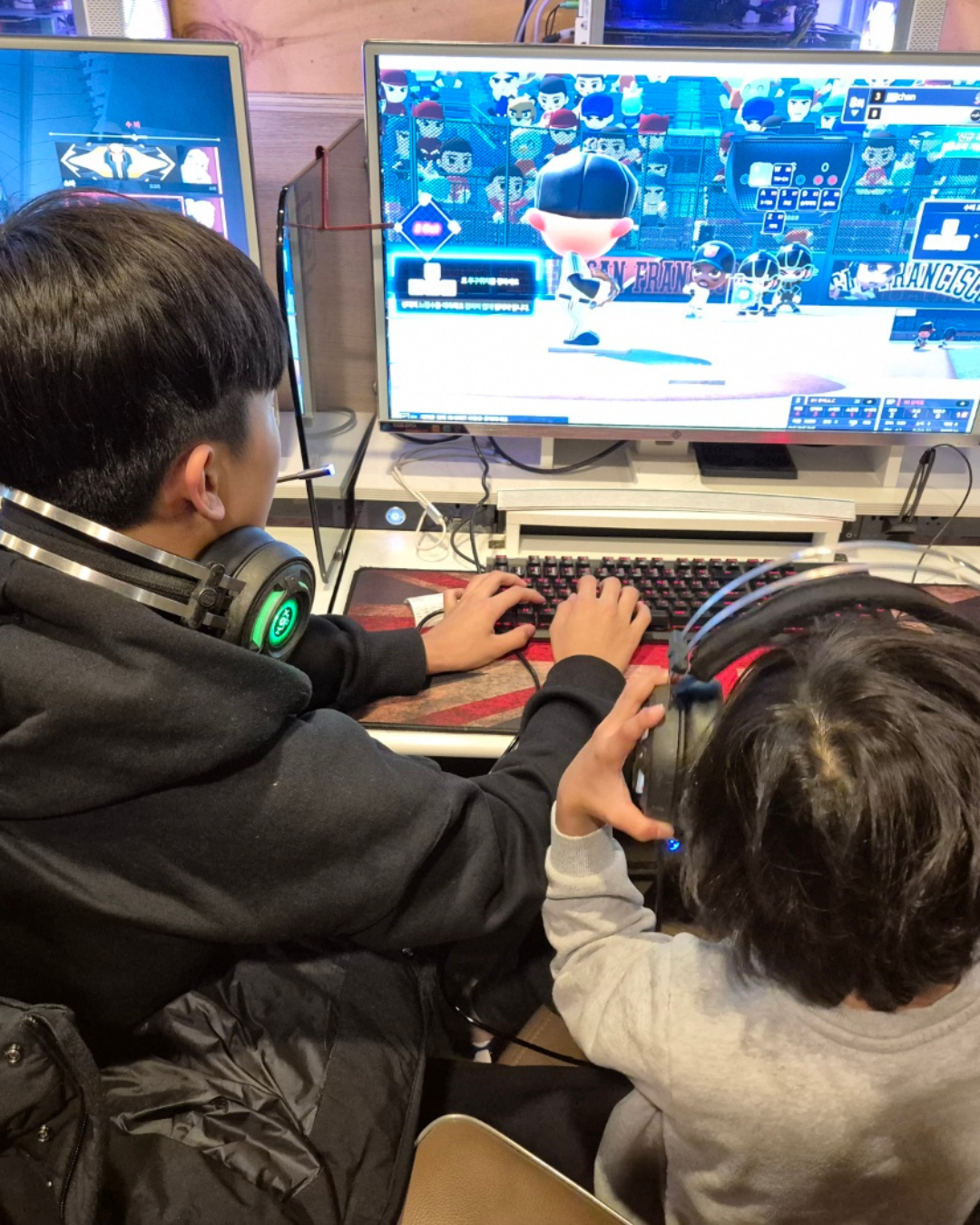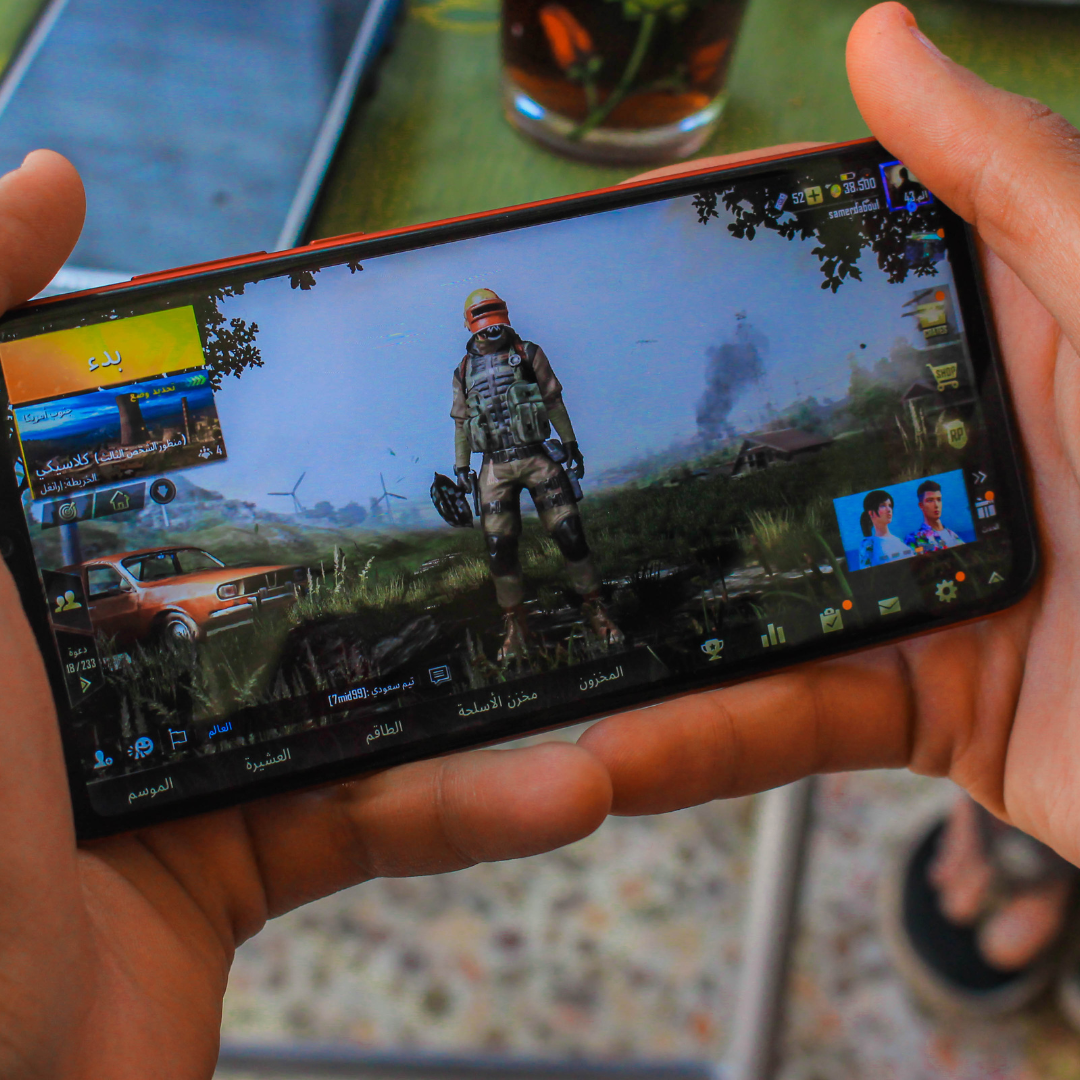Gaming has become a significant aspect of many children’s lives, influencing their behaviour, social skills, and cognitive development. Parents and educators often debate the impact of gaming, weighing its potential benefits against the risks. Research indicates that when managed properly, gaming can enhance skills such as problem-solving, teamwork, and critical thinking in children.
Despite concerns regarding excessive screen time and exposure to inappropriate content, gaming offers opportunities for learning and social interaction. Many games promote collaboration and communication, allowing children to engage with peers in meaningful ways. The key lies in encouraging healthy gaming habits and selecting age-appropriate content to maximise the positive outcomes.
As gaming continues to evolve, parents must stay informed about its effects. By understanding both the advantages and the challenges, they can help their children navigate the gaming landscape responsibly, fostering an environment that harnesses the positive aspects of this popular pastime.
Overview of Gaming in Childhood
Gaming has become an integral part of childhood experiences today. Understanding the evolution of gaming culture, children’s typical gaming habits, and the categories of games that appeal to them provides insight into their gaming landscape.
Growth of Gaming Culture among Children
The gaming culture among children has seen significant growth over the past two decades. Advances in technology, including the rise of smartphones and internet accessibility, have contributed to this trend.
Today, children can easily access various gaming platforms, from console gaming to mobile applications. Popularity has soared, with gaming events and esports attracting large audiences. Furthermore, social interactions within games play a key role. Many games offer multiplayer options, enabling children to connect with peers and foster friendships. This shift has transformed gaming into a communal activity rather than a solitary pastime.
Typical Gaming Habits of Children
Children often engage in gaming for various reasons, including entertainment, competition, and relaxation. Research indicates that the average child spends several hours per week gaming, with many favouring games during weekends and holidays. Their gaming choices frequently reflect social influences, such as peer recommendations and trends within their age group.
Many children enjoy short gaming sessions, which can range from 30 minutes to a few hours. This preference aligns with their attention spans and the dynamic nature of modern gaming, featuring quick rewards and engaging gameplay. Children’s gaming habits also include a mix of solo and social play. Multiplayer experiences encourage teamwork and strategic thinking, important skills for children to develop.
Categories of Games Popular with Children
Several categories of games captivate children, each appealing for unique reasons.
Action and Adventure Games: These often include combat and exploration elements. Titles like “Minecraft” and “Fortnite” are particularly popular, allowing players to engage in creative building and competitive play.
Puzzle and Educational Games: Many parents favour these games for their potential to enhance cognitive skills. Examples include “Fruit Ninja” and “City Builder,” which blend fun with learning.
Role-Playing Games (RPGs): These games allow children to immerse themselves in character-driven narratives. Games like “Roblox” foster creativity through user-generated content.
Simulation Games: Simulation games such as “The Sims” offer children insights into real-world scenarios in an interactive format.
The diversity of game types ensures that children find genres that resonate with their interests, enhancing their gaming experience.
Psychological Implications of Gaming
Gaming influences children’s psychological development in various ways. These impacts encompass cognitive skills, social interactions, attention spans, and the risk of addiction.
Cognitive Development and Gaming
Numerous studies suggest that certain video games can enhance cognitive skills. Action games often require quick decision-making, which may improve reaction times and spatial awareness. Strategic games promote problem-solving abilities and critical thinking, as players must devise plans to achieve objectives.
Moreover, puzzle and simulation games stimulate mental agility. Children learn to adapt to changing scenarios, fostering resilience and flexibility. However, the quality of games plays a critical role; educational games can yield additional benefits that are not found in purely entertainment-driven titles.
Social Skills and Multiplayer Interactions
Multiplayer games create opportunities for social engagement. They allow children to collaborate with peers, developing teamwork and communication skills. Engaging in team-based activities helps them understand group dynamics and build friendships.
Conversely, reliance on digital interactions may hinder face-to-face social skills. Children might struggle with non-verbal cues and emotional expressions. The balance between online and offline social experiences is essential for fostering well-rounded social abilities.
Effects on Attention and Concentration
Gaming can both positively and negatively affect attention spans. Fast-paced games demand sustained focus, potentially improving attention control. Children learn to filter distractions and maintain concentration in engaging scenarios.
However, excessive gaming could diminish attention spans in other areas. Screen time can lead to shorter attention spans when engaged in non-gaming tasks. It’s crucial to set limits to foster healthy attention development across different activities.
Gaming Addiction and Compulsive Behaviours
Gaming addiction is a growing concern among children. Symptoms can include withdrawal from other activities, compulsive gaming, and neglect of responsibilities. This behaviour may interfere with academic performance and social relationships.
Recognition of gaming addiction symptoms is crucial for prevention. Establishing time limits and encouraging a variety of activities can mitigate risks. Parents and guardians should monitor gaming habits and support balanced digital engagement to minimise the impacts of compulsive behaviours.
Physical Effects of Prolonged Gaming
Prolonged gaming can lead to several physical health issues in children. Key concerns include the risks associated with a sedentary lifestyle, potential eyesight deterioration, and the development of repetitive strain injuries.
Sedentary Lifestyle and Obesity Risks
Extended gaming sessions often result in a sedentary lifestyle. Children may spend hours sitting, leading to decreased physical activity. This can contribute to weight gain and obesity.
According to the World Health Organization, childhood obesity can lead to serious health issues. These include diabetes, cardiovascular diseases, and psychological effects like low self-esteem. Encouraging regular breaks and physical activity can help combat these risks. Parents can implement structured playtime or sports to engage children physically.
Impact on Eyesight
Prolonged screen time can negatively affect eyesight. Children may experience digital eye strain, characterised by symptoms such as headaches, dry eyes, and blurred vision. The American Optometric Association suggests that extended gaming may lead to difficulties in focusing and adjusting to different distances. Taking regular breaks using the 20-20-20 rule can mitigate these effects. This involves looking at something 20 feet away for 20 seconds after every 20 minutes of screen time.
Repetitive Strain Injuries and Ergonomics
Repetitive strain injuries can occur from prolonged gaming without proper ergonomics. Constant pressing of buttons or mouse buttons may lead to discomfort or injury in the hands and wrists. Conditions such as carpal tunnel syndrome are common among frequent gamers. It is crucial to ensure that gaming setups promote good posture and hand positioning. Using ergonomic controllers and maintaining a comfortable chair height can reduce strain. Parents should encourage children to change positions and stretch regularly during gaming sessions.
Educational Influence of Gaming
Gaming has been recognised for its potential to enhance learning experiences in diverse ways. It offers innovative approaches that can make educational content more engaging and interactive for children.
Educational Games and Learning Outcomes
Educational games have been designed to teach specific subjects while retaining the engagement factor that general gaming provides. These games often include elements of competition, reward systems, and progressive challenges that motivate children to learn.
Research shows that players who engage in educational games can improve their understanding of subjects such as mathematics, language, and science. For instance, games like “Math Blaster” and “Wordscapes” help reinforce concepts while developing problem-solving abilities.
Importantly, these games can accommodate varied learning styles, making them accessible for children who may struggle in traditional educational settings. This adaptability fosters a more inclusive learning environment, helping all students achieve their potential.
Incorporation of Gaming in Modern Teaching
Many educators are increasingly integrating gaming into curricula to enhance student engagement and comprehension. This approach often involves using both video games and board games as learning tools in classrooms.
Teachers may employ simulations or role-playing games to bring subjects to life. For instance, using games that simulate historical events allows students to experience and analyse complex scenarios actively.
By incorporating gaming elements, educators can create immersive environments where students feel more invested. The incorporation of real-time feedback and assessment in these platforms also provides valuable insights into individual learning progress.
Gaming and Problem-Solving Skills
Gaming is particularly effective in developing critical thinking and problem-solving skills. Many games require players to navigate complex challenges, think ahead, and adapt to changing situations.
For example, puzzle games like “Portal” or strategy games such as “Civilization” compel children to analyse information, develop strategies, and assess outcomes. These cognitive skills can translate directly to academic settings. Moreover, teamwork-oriented games encourage collaboration, teaching children to communicate effectively and work together towards shared goals. Such experiences can foster essential social skills that benefit them in both school and life.
Gaming and Behavioural Outcomes
Gaming possesses significant potential to shape children’s behaviour, influencing aspects like aggression, empathy, and social interactions. Understanding these effects is crucial for parents and educators.
Influence on Aggression and Empathy
Research indicates that certain types of video games, particularly those with violent content, may lead to increased aggression in children. Studies suggest that prolonged exposure to such games can desensitise players to violence. Players may exhibit reduced empathy towards real-life victims of violence, as they become accustomed to seeing aggression as part of gameplay.
In contrast, non-violent games often foster emotional skills. These games encourage players to engage with characters and narratives, promoting empathy. A child’s ability to connect emotionally with in-game situations can translate to real-life scenarios, enhancing their understanding of others’ feelings.
Prosocial Behaviours and Cooperative Gaming
Many games encourage prosocial behaviours, such as teamwork and cooperation. Multiplayer games often require players to work collaboratively to achieve common goals. This can lead to improved social skills and a sense of community among players.
Additionally, games that reward helpful behaviours can reinforce positive interactions. Players might develop a sense of altruism or a desire to assist others. These experiences can encourage children to engage in similar behaviours offline, fostering friendships and community involvement.
Gaming Etiquette and Online Interactions
The online gaming environment exposes children to unique social dynamics. Proper gaming etiquette is crucial for maintaining respectful interactions. Many games incorporate rules that promote sportsmanship, teaching children how to behave positively in competitive settings.
Moreover, online interactions provide a platform for children to learn conflict resolution skills. Dealing with diverse opinions and personalities can enhance their communication skills. Understanding appropriate ways to engage with others online is a vital aspect of modern gameplay, shaping their social interactions beyond the screen.
Parental Guidance and Screen Time Management
Effective parental guidance and appropriate screen time management are crucial for optimising the benefits of gaming while mitigating its potential drawbacks. The following points discuss essential strategies for managing children’s gaming experiences.
Setting Appropriate Screen Time Limits
Establishing clear, appropriate screen time limits helps children develop healthy gaming habits. Parents should consider a balance between gaming and other activities, setting daily or weekly limits based on the child’s age and responsibilities.
For example, the American Academy of Pediatrics recommends:
- Age 2-5: No more than one hour of high-quality programming per day.
- Age 6 and older: Consistent limits that ensure sufficient time for sleep, physical activity, and other healthy behaviours.
Using timers or apps can help enforce these limits effectively.
Parental Oversight and Content Restrictions
Active parental oversight is vital in ensuring children engage with age-appropriate content. Parents should familiarise themselves with game ratings and specific content guidelines to make informed decisions.
Implementing content restrictions can include:
- Utilising parental controls on gaming consoles and devices.
- Regularly reviewing the games their children play, ensuring they understand the themes and messages.
Encouraging open communication about gaming experiences fosters a safe environment for children to express their thoughts and feelings.
Balancing Gaming with Other Activities
Encouraging children to participate in a variety of activities promotes a balanced lifestyle. Parents should actively engage their children in discussions about scheduling time for:
- Outdoor play or sports, foster physical health.
- Reading or other educational activities, enhance cognitive development.
- Family time or social interactions, building important interpersonal skills.
Creating a weekly family schedule that allocates specific times for gaming, homework, and other activities can help maintain a balanced routine. This approach ensures that gaming remains a fun and purposeful part of a child’s life without overshadowing other critical experiences.
Future Trends in Gaming and Child Development
The landscape of gaming is rapidly evolving, impacting child development in various ways. Innovations in technology and shifts in cultural perceptions will shape the future of gaming experiences for children.
Technological Advancements in Gaming
Emerging technologies such as virtual reality (VR), augmented reality (AR), and artificial intelligence (AI) will transform gaming. VR and AR can provide immersive environments that enhance learning through interactive gameplay. Children can explore historical events or scientific concepts in engaging ways.
AI can personalise gaming experiences, adapting challenges to suit individual skill levels. This leads to more tailored educational opportunities. Gamification, where learning materials resemble game mechanics, is becoming more prevalent, making education more appealing to children.
Predicted Shifts in Gaming Culture
The gaming culture is expected to evolve, focusing more on inclusivity and positive social interactions. As developers recognise the importance of diverse representation, games will increasingly feature characters from various backgrounds. This promotes empathy and understanding among young players.
Collaborative gameplay will also gain traction. Multiplayer games encourage teamwork and communication, helping children develop social skills. Parental guidance will become more critical, as families navigate the increasingly interconnected world of online gaming.
Long-Term Studies on Gaming Impact
Research on the long-term effects of gaming is gaining momentum. Ongoing studies will examine the correlation between gaming habits and cognitive skills development. This research will delve into areas such as problem-solving abilities, creativity, and spatial awareness.
Psychological effects will also be monitored. Understanding how gaming influences behaviour and emotional development is vital. By focusing on both positive and negative outcomes, researchers aim to provide insights that can guide parents and educators in promoting healthy gaming habits for children.





Leave a Reply